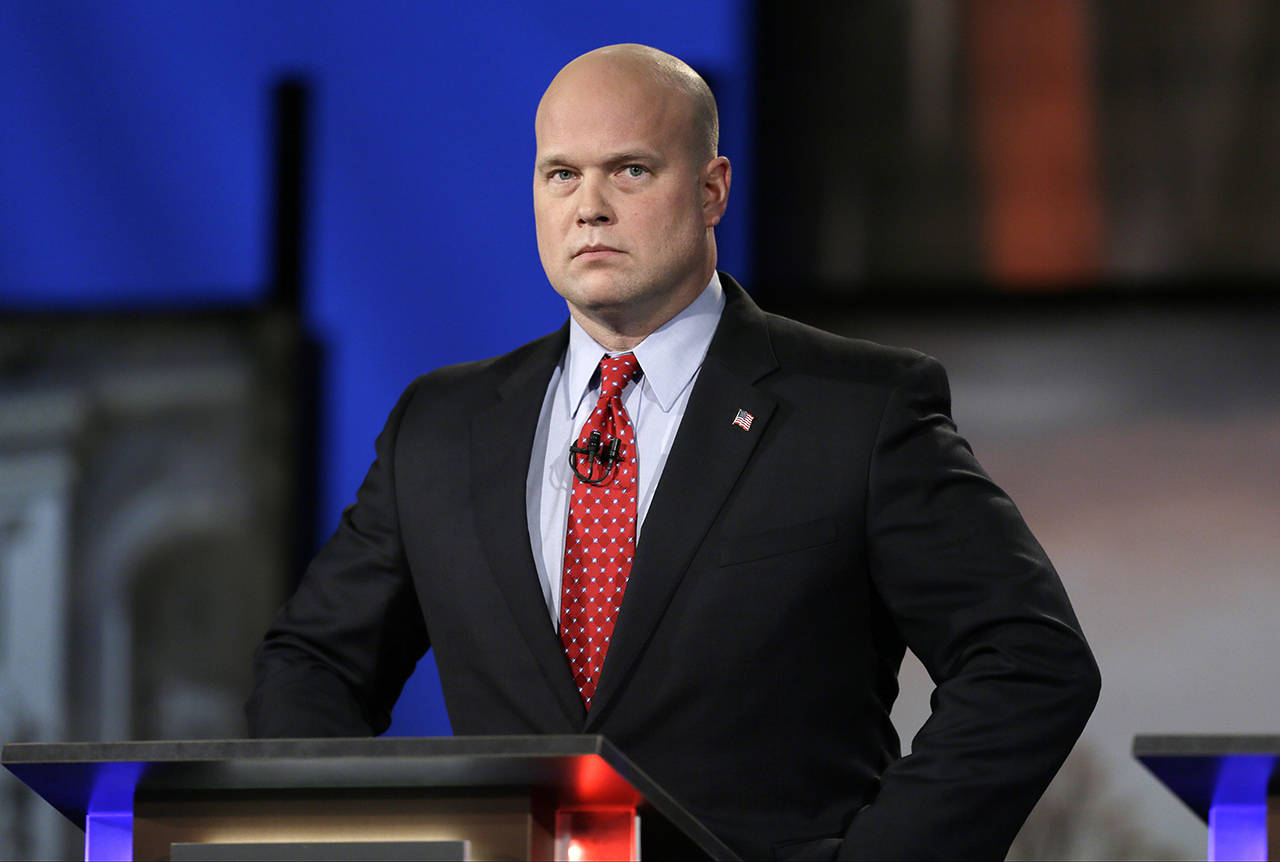By Matt Zapotosky / The Washington Post
WASHINGTON — In the roughly two years before he rejoined the Justice Department, acting attorney general Matthew Whitaker earned more than $900,000 from a conservative charity with no other employees and collected more than $1,800 in “legal fees” from a Miami-based invention-marketing company that was shut down amid accusations of fraud, according to a financial disclosure form made public Tuesday.
The form, which Whitaker first filled out after taking over as Attorney General Jeff Sessions’s chief of staff, shows Whitaker drew a salary from the conservative Foundation for Accountability and Civic Trust of $904,000 and collected $1,875 in legal fees from World Patent Marketing.
That company is notable because it shut down in May and agreed to pay a settlement of more than $25 million to resolve a Federal Trade Commission inquiry into its practices.
Whitaker also reported a $103,000 distribution from his own law firm and $15,000 in consulting fees from CNN, the form shows. He reported that he had two liabilities of between $10,000 and $15,000 in 2017 — both credit card accounts.
The disclosure report covers 2016 through October 2017, when Whitaker started at the Justice Department. Although Whitaker first signed it in November 2017, the report was revised several times after he took over as acting attorney general in the wake of Sessions’s ouster.
Whitaker filed another disclosure in 2018, covering only the previous calendar year. It lists similar sources of income but does not reference World Patent Marketing.
In addition to facing scrutiny from the FTC, World Patent Marketing had been separately probed by the FBI. A Justice Department spokeswoman has said, “Acting attorney general Matt Whitaker has said he was not aware of any fraudulent activity.”
As a member of the company’s advisory board, Whitaker collected about $10,000 in fees, court documents show, and he personally intervened when a consumer complaint website posted comments critical of the company. A receiver appointed to oversee World Patent Marketing said he wrote to Whitaker and other paid members of the advisory board to ask that they return the fees they had received. Whitaker did not respond.
Even before his financial disclosure was made public, Whitaker’s finances had come under intense scrutiny.
Over the past two decades, Whitaker owned a day-care center, a concrete supply business and a trailer manufacturer; served as the U.S. attorney in Iowa; and before coming to the Justice Department to be Sessions’ chief of staff, did legal commentary and led the Foundation for Accountability and Civic Trust, which described itself as a watchdog nonprofit dedicated to exposing unethical conduct by public officials.
Whitaker also was involved in a taxpayer-subsidized effort to rehabilitate an apartment building for affordable housing in Des Moines but made little progress — frustrating city leaders — and ultimately walked away from the project.
Democrats and others have separately raised questions about whether Whitaker can legally hold the position of acting attorney general because he has not been confirmed by the Senate, and whether he might seek to interfere with the special-counsel probe into Russian election interference, of which he had been publicly critical. On Tuesday, Senate Minority Leader Charles Schumer, D-N.Y., asked the Justice Department’s inspector general to explore Whitaker’s communications with the White House, saying he was concerned that the acting attorney general might have shared with President Trump information about that investigation.
The Washington Post’s Rosalind S. Helderman and Robert O’Harrow contributed to this report.
Talk to us
> Give us your news tips.
> Send us a letter to the editor.
> More Herald contact information.

























